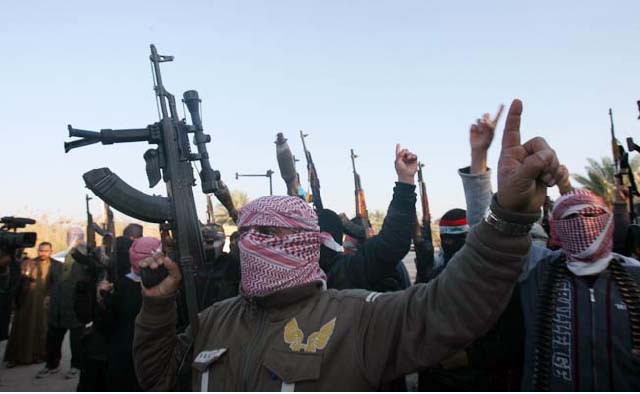Maintaining the bond of an intimate community is possible through practicing tolerance and the spirit of brotherhood. Tolerance seems to be the glue that holds the multi-ethnic nation of China together. People exercise their rights and freedoms in China without being discriminated on the grounds of their caste, color or creed. The Chinese deem themselves a single nation.
One of the main reasons behind a violence-free China is the tolerance of the public towards one another and acceptance of racial and religious diversity. In China, religious beliefs and personal faith are not involved in politics or social issues. Since it is feared that religious issues will turn controversial at schools, the government has not included religious tenets in the syllabus. It is believed that the Chinese practice upon the Universal Declaration of Human Rights (UDHR) which states, “Everyone is entitled to all the rights and freedoms set forth in this Declaration, without distinction of any kind, such as race, color, sex, language, religion, political or other opinion, national or social origin, property, birth or other status….” The UDHR further adds in article 3, “Everyone has the right to life, liberty and security of person.” Chinese government protects the fundamental rights of the citizens in the best way. It is most likely that there is no gap between state and nation.
The ethnic minority groups in China have been paid greater attention by the government. To view birth control, the ethnic minorities are allowed to have three children while others cannot have more than two – the minorities are treated with positive discrimination.
Recently, during my visit to Xinjiang Uyghur Autonomous Region where many ethnic groups live, including Uyghur, Han, Kazakh, Hui, Kirgiz, Mongol, Tajik, Xibe, Full, Uzbek, Russian, Daur and Tatar who “are the indigenous peoples of Xinjiang.” China officially recognizes 55 ethnic minority groups in addition to the Han majority. China’s official 55 minorities are located primarily in the south, west, and north of China. Only Tibet and Xinjiang have a majority population of official minorities, while all other provinces, municipalities and regions of China have a Han majority. The China’s Constitution and laws guarantee equal rights to all ethnic groups in this county and help promote ethnic minority groups’ economic and cultural development. One notable preferential treatment ethnic minorities enjoy is their exemption from the population growth control of the two-Child Policy, as it was mentioned above. Ethnic minorities are represented in the National People’s Congress as well as governments at the provincial and prefectural levels. Some ethnic minorities in China live in what are described as ethnic autonomous areas. These “regional autonomies” guarantee ethnic minorities the freedom to use and develop their ethnic languages, and to maintain their own cultural and social customs. In addition, the People’s Republic of China government has provided preferential economic development and aid to areas where ethnic minorities live. Additionally, the Chinese government has allowed and encouraged the involvement of ethnic minority participation in the party. They are able to gain political positions, too.
Now to consider Afghanistan, intolerance and lack of racial and ethnic acceptance have led to violence and bloodshed. Warring parties, mainly the Taliban and self-styled Islamic State (IS) group, violate people’s rights and freedoms for their backgrounds. Ethnic minority groups are highly vulnerable to violence. For instance, the IS fighters sought to stoke sectarianism via abducting and killing minority groups, including women and children within the couple of years.
Strong sensitivity to religious, moral and cultural diversity is likely to be a menace to political stability and individual and collective rights and liberties. A large number of people suffer for their religious, racial, sexual and linguistic diversity. The current situation in the region, including Afghanistan, suggests that dogmatic ideologies and warped minds will result in war and violence. Not only Afghanistan but the entire region will undergo the unmitigated pains and sufferings unless we view the world and the human beings from a wider lens rather than parochial mindset.
In fact, “all human beings are born free and equal in dignity and rights” and should be able to exercise their rights without fear. We have to treat one another on the basis of being human. Otherwise, there will be no end to our sufferings and no panacea for our bleeding wounds.
After all, human societies will be paragons of peace and stability for one another. For example, China and Afghanistan are multi-ethnic countries, with difference in proportions, and our country should learn the tolerance and acceptance of diversity. Although it is a rule that applying a text in different contexts will not bear the same fruit, tolerance will always pave the ground for peace and stability. On the contrary, claiming racial and religious superiority will pose threat to a nation and society. It is believed that practicing upon Golden Rule which says, “Do unto others as you would have them do unto you” will mitigate the anguish of the entire human societies. Unlike religious tenets, there is no ifs and buts in this rule and no room for interpreting it in one’s own interests.
Home » Opinion » Diversity – Bone of Contention or Bond of Affection?
Diversity – Bone of Contention or Bond of Affection?
| Hujjatullah Zia

